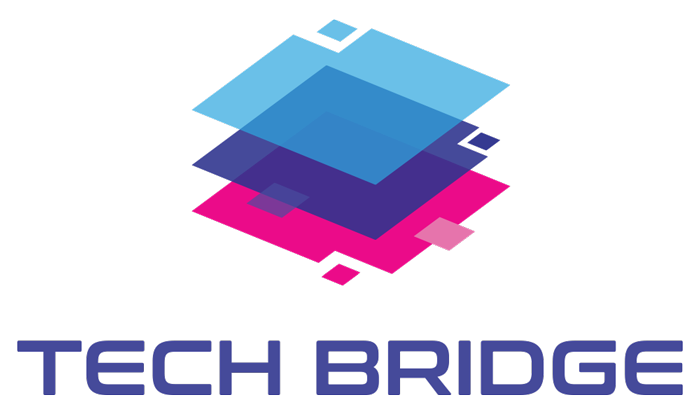Industry Insights
Investment Industry in Tech Insights EU-Netherlands


Market Overview
Approximately 180 million Euros will be allocated by the European Union (EU) to pioneering new technologies in the field. It is part of a broader effort to boost the EU’s digital economy by promoting research, development and digital entrepreneurship. The funds enhance the competitiveness and sustainability of the EU’s digital single market. The key technologies driving Europe’s shift towards a technological, sustainable and inclusive future include Artificial Intelligence, robotics, and advanced materials (European Commission, 2023). The EU views these technologies as offering new business opportunities, boosting productivity, and creating jobs. As part of its commitment to maintaining competitiveness in the digital economy, the Commission will continue to invest in digital technologies.
The Netherlands: Industrial Focus
In the Netherlands, investment in the tech industry has become the heart of innovation. A few industries have become increasingly intriguing, such as M&As, climate-related technology, and technology-related workforce management (Invest In Holland, 2015:2023; Chambers & Partners, 2022).
The high-tech industry is vital to the Netherlands. The sector drives economic growth and innovation. High-tech makes a significant and growing contribution to the Dutch economy, with 784,000 FTEs in 2021, or 10% of total employment in the Netherlands. Gross added value was estimated at 80.2 billion euros in 2021. While the share of the manufacturing industry in the Dutch economy has declined over the past 25 years, the percentage of the high-tech sector has increased.

Developments in ICT and Deep Tech in the Netherlands
In 2026, it is estimated that the Netherlands will be one of the world’s leading exporters of information and communication technology, with an export volume estimated at $23.4 billion. Since 1987, the industry has grown by 2.4% per year on average. According to ReporterLinker (2022), this is an unprecedented industry growth. In addition to the robust educational system in the Netherlands, the Dutch government has invested heavily in research and development in the information and communication technologies sector, contributing to its growth.
Additionally, the country has a well-developed infrastructure and an efficient labour market, enabling it to attract and retain highly skilled workers. University and research institutes have significantly increased the number of science-based ventures they have supported during the last eight years due to an emphasis on ‘valorisation’. Public universities generate the majority of spin-offs, comprising 30%. This is followed by UMC’s 28%, general universities (25%), and non-profits (7%) (TechLeap, 2022).
Europe’s Deep Tech industry has grown enormously and demonstrated resilience during market turmoil. The development of innovative solutions to complex, data-driven problems is attributed to the ability of Deep Tech companies to capitalise on the opportunities offered by new digital technologies. It has enabled them to develop sustainable competitive advantages and to become significant players in the technology sector.
Deep Tech companies apply a novel scientific or engineering breakthrough to a product for the first time in history. European Deep Tech start-ups raised $17.7 billion in 2022, 22% less than in 2021 but still +60% more than in 2020. Many investors still view investing in Deep Tech companies cautiously due to their high-risk level. The increase in 2020 is a positive sign that investors are becoming more open to investing in Deep Tech start-ups.
Consequently, investors increasingly seek opportunities to invest in Deep Tech start-ups to exploit the potential of the rapidly expanding sector. According to Dealroom, Lake Star and Walden Catalyst (2023), four core emerging segments of Novel AI, Future of Computing, Novel Energy, and Space Technology raised $4.4 billion in 2022, the highest amount ever and double what they raised in 2020.
Industry Investment Opportunities
- Purpose-driven technology (e.g. climate change).
- Regtech (Regulation Technology).
- Dutch venture capital funds growth.
- Support for Deep Technology.
(State of European Technology, 2023; TechLeap, 2023)
Industry Challenges
- Deep Tech in the Netherlands is under-invested.
- The high cost of capital and interest rates reduce the cash flow of Dutch technology companies.
- The threat of competition from the United States and Asia.
- There has been a stagnation in Dutch start-up activity.
(TechLeap, 2023; Silicon Canals, 2023)
Statistics:
It was estimated that the total amount of VC funding in the Netherlands would reach €2.6B in 2022 and that the average amount of financing for all start-ups would be €0.26M.
(Silver Canals, 2023)
Over 3.4K start-ups and 51.6K start-up jobs are based in North Holland.
(TechLeap, 2023)
The IT Services market in the Netherlands is projected to generate US $22.5 bn in revenue by 2023.
(Statista, 2023).
Climate and Purpose are the third-largest investment themes in 2023, following Software at 18%.
(State of European Tech, 2023)
By 2028, Dutch IT Services revenue is expected to grow at a CAGR of 6.23%, resulting in a market volume of US $30.4bn.
(Statista, 2023).
Dutch high-tech has three main subsectors:
Computers, electronics & optics
Within the Dutch computer, electronic, and optical industries, the manufacture of instruments and devices for measuring, testing and navigation accounts for the largest share.
Although most high-tech industry subsectors have grown recently, not all have seen strong productivity growth. Particularly noteworthy is the machinery subsector, which has seen an annual increase in gross added value by 7.3% on average. In addition, it exhibited the highest level of labour productivity (4.9%), only second to electrical equipment (5.3%) (TNO, 2023).
Electrical appliances
The electrical equipment industry produces various equipment and devices. In the Netherlands, the main activities include:
- The production of lighting equipment.
- Electrical household appliances.
- Electric engines, generators, and transformers.
- Electricity distribution and control equipment.
- The production of electronic and electrical wires and cables.
Machinery
With companies such as ASML, ASMI, and BESI, the Netherlands is a world leader in producing machinery that manufactures chips and semiconductors.
